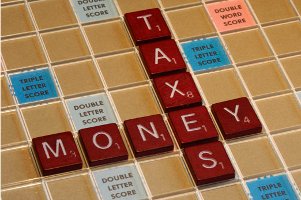LGU’s PIL vs. Sales Figures Filed with BIR
 PIL means Predictive Income Level that a Local Government Unit (LGU) applies to a business owner in computing his local tax in case it does not agree with the declared income of the taxpayer. This is often a cause of heated discussion between a taxpayer and the Business Permits & Licensing Office (BPLO) of his town or city every start of the year. I had already discussed this situation in my earlier blog entitled The PIL vs. Declared Income of a Café.
PIL means Predictive Income Level that a Local Government Unit (LGU) applies to a business owner in computing his local tax in case it does not agree with the declared income of the taxpayer. This is often a cause of heated discussion between a taxpayer and the Business Permits & Licensing Office (BPLO) of his town or city every start of the year. I had already discussed this situation in my earlier blog entitled The PIL vs. Declared Income of a Café.
As a way of an example, I know of an urban city government that used PhP150.00/unit per day as PIL for taxing i-cafés on their 2008 sales. The figure is unacceptable to most i-café owners in the city but what can they do? There is a saying that “you cannot fight city hall” but there should be a solution to this. A city official advised the taxpayer to file a protest so they could send an auditor to look at the real status of his business.
But it seems sending the city auditor is no longer necessary. There is Revenue Memorandum Circular (RMC) No. 12-2008 issued by the Bureau of Internal Revenue (BIR) on January 8, 2008 which prescribes the submission of certain BIR documents before any application for initial registration or renewal of business license can be acted upon.
Initial registrants are required to submit Taxpayer Identification Number, Certificate of Registration issued by the BIR and Proof of Payment of Annual Registration Fee (BIR Form No. 0605). For renewal purposes, the Annual Income Tax Return and Monthly/Quarterly VAT Declaration/Returns or Monthly Percentage Tax Returns shall be submitted, in addition to the required documents for initial registration.
It should not pose any problem implementing RMC No. 12-2008 in the case of some taxpayers except that filing of documents for renewing business permits with LGUs has to be done on or before January 20 while the deadline for filing the annual income return with BIR is April 15 of each year. This situation could result to penalty in the payment of the first quarter local tax of a i-café owner if he would opt to protest the local tax due and wait for his official annual income tax return to settle the issue.
Given the above scenario, what can a i-café owner (or any local taxpayer) do? I say, make a simple calculation. Compute for total local tax due if the figure in your annual income tax return will be used and see the difference of the figure against the LGU’s assessed figure using PIL.
Compute the 25% penalty for your first quarter local tax using the figure in your annual income tax return. If there is a difference in favor of using the figure in your income come tax return, then go file a protest.
There are two (2) things you gain here. First, you buy some time and get to use the money you will pay for the first quarter local tax for something else. And secondly, you prove your point that the LGU was wrong on the PIL they want to impose on you.




Latest Feedbacks